The promise of new flavours beckons from Banawe.
7 Valid IDs in the Philippines You Should Have Right Now as an Adult
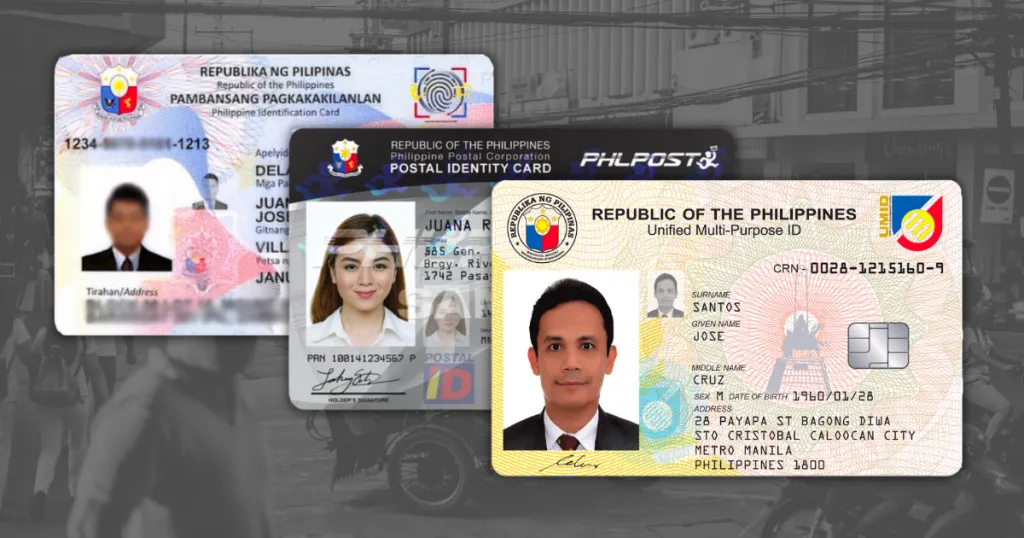
Getting a valid ID in the Philippines is very important, especially for us adults. We know how it is. With age comes responsibilities, and with those responsibilities come all the things that we have and want to do: apply for a job, open a bank account, travel, own real estate, get vaccine shots, among other private and government transactions. Doing all of these requires us to have at least one valid ID; and in most cases, we’ll even be asked for two.
All this considered, getting an ID for yourself should be an obvious priority. So, if you’re looking to get your first government-issued ID, or if you already have one but want to add another, we’ve rounded up each valid ID in the Philippines that you must have as an adult.
Easy choices for your first valid ID in the Philippines
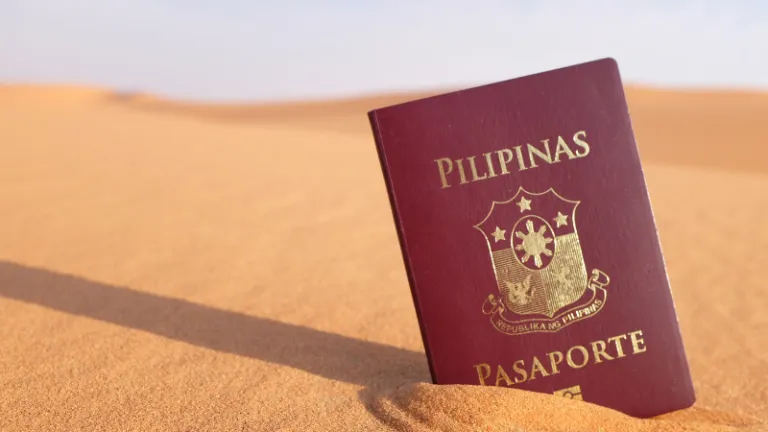
Isn’t it bewildering that applying for a valid ID in the Philippines requires you to show another? We know the struggle. The scenario reminds us of the challenge of applying for a first job, but needing work experience to back our applications.
Getting a valid ID in the Philippines is indeed demanding, but we understand, and we’re here to help. First things first: We recommend that you get an original copy of your PSA-issued birth certificate. It’s the main document requirement you have to submit for your first ID. Fortunately, you can order a birth certificate online.
Once you have secured your birth certificate, you can proceed to apply for the following valid IDs in the Philippines.
1. Postal ID
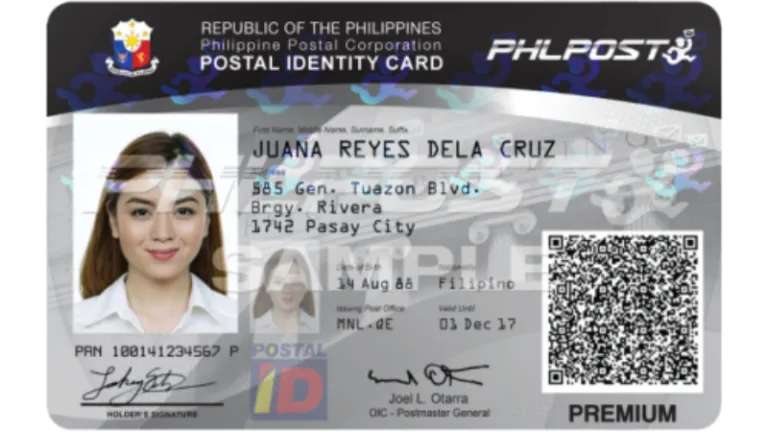
The Postal ID is one of the easiest government-issued IDs to obtain. Any Filipino, regardless of current residency, is eligible to get one. Even foreign nationals can get this ID, too, granted that they have proof of Philippine residency and have been in the country for at least six months.
Infused with improved physical and biometrics-based security measures, the Postal ID is a great starter ID that is both secure and accessible. It’s the ID to get if you don’t have one yet. The best part of owning this ID? You can apply for other valid IDs with ease in the future.
How to apply
Download and fill up the application form. Prepare the necessary requirements and head over to your nearest ID capture station. The officers in charge will get your biometrics there as well. Upon completion, your ID will be delivered to your mailing address.
Requirements
Bring the original copy and photocopy of the following documents.
- Two copies of fully accomplished Postal ID application form
- Any of the following proof of address:
- Barangay Certificate of Residency issued within three (3) months prior to application
- Certified True Copy of Lease
- Bank or credit card statement
- Certified True Copy of Titles issued by the Land Registration Authority (LRA)
- Utility bill under your name (electric, cable, landline, internet, telephone, water)
- School billing statement
- Certified True Copy of Real Estate Tax Receipt
- Any of the following proof of identity:
- Birth certificate issued by NSO or local civil registry
- GSIS or SSS UMID card
- Valid driver’s license
- Valid passport
If you’re a married woman using your husband’s surname, you must bring your marriage certificate as an additional document to validate this. Should you lack any of the proof of identity above, don’t worry; the Philippine Postal Corporation (PHLPost) still accepts other documents as proof. You may check other valid documents here.
Cost and estimated turnaround time: A fixed fee of ₱504 must be paid. Your Postal ID will be delivered in approximately 15-30 working days, depending on your location.
Validity: Postal IDs are valid for three years for Filipinos and for foreign residents with a Special Retiree’s Resident Visa (SRRV). Without SRRV, foreign residents can still apply for a one-year validity.
Also read: Philippine Postal ID: Why You Should Get One & How to Apply
2. Philippine passport
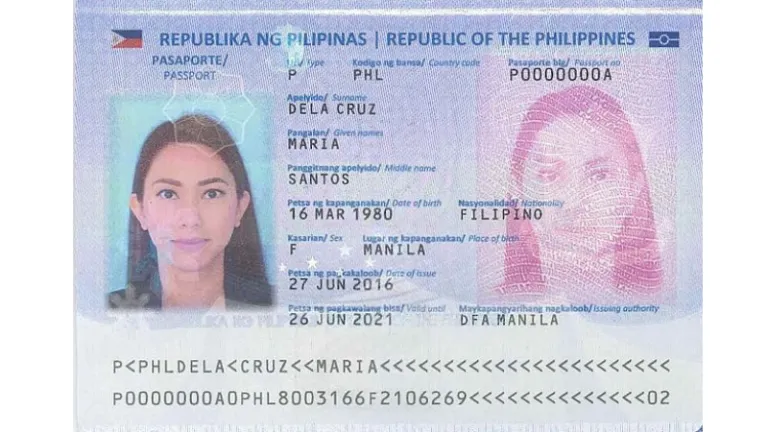
A passport is widely accepted as one of, if not the most, powerful legal document in terms of validating identification. Nothing else can better prove your citizenship than your own passport. Of course, the passport is also an essential ID to have when travelling abroad.
How to apply
Secure an appointment with the Department of Foreign Affairs (DFA) through its online portal. Prepare the necessary requirements. Be at your respective DFA office no less than 30 minutes earlier than your selected time and date of appointment.
Requirements
- Fully accomplished Philippine passport application form
- Original and photocopy of birth certificate issued by NSO or local civil registry
- Married females’ original and photocopy of PSA-issued marriage contract
- Original and photocopy of one valid ID. See the list of acceptable cards here.
Cost and estimated turnaround time: Regular processing costs ₱950 and takes about 12 working days. To have the process expedited within six days, you will have to pay ₱1,200.
Validity: A Philippine passport is valid for 10 years for adults (18 years old and above). For minors, it’s good for five years.
Also read: Did You Know You Can Apply for Your Pet’s Passport in the Philippines?
3. Unified Multi-Purpose Card (UMID)
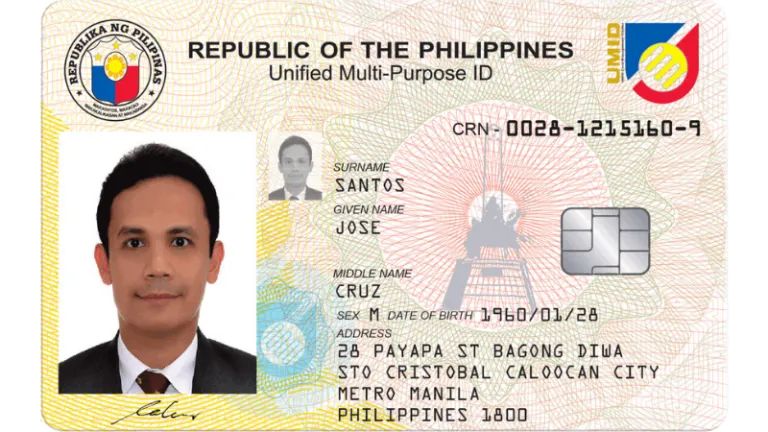
The Unified Multi-Purpose Card, more commonly known as UMID, is a four-in-one government-issued ID that allows you to transact in government agencies, particularly with the Social Security System (SSS), Government Service Insurance System (GSIS), Pag-IBIG, and Philippine Health Insurance Corporation (PhilHealth). With this, it’s a valid ID in the Philippines perfect for employees of government agencies or private institutions. Aside from being an ID, the UMID is also an ATM card that allows you to withdraw GSIS or SSS benefits and loans. Cool!
How to apply via SSS
Download and fill up the UMID application form from SSS. Schedule an appointment via the SSS members’ portal. Walk-in applicants are also accepted, but you have to follow their number coding system of scheduling for walk-in clients. Proceed to your selected SSS branch. You’ll also record your biometrics there. When your ID is ready for pick-up, you’ll receive a notification text message.
SSS requirements
- Fully accomplished UMID application form from SSS
- One primary valid ID (e.g. Postal ID, driver’s license, passport). Alternatively, you can submit two secondary IDs. You can check the complete list in the application form.
Cost and estimated turnaround time: Getting a UMID is free of charge. The average turnaround time after your application is about 30 working days.
How to apply via GSIS
The application for UMID via GSIS is quite similar to the SSS process. Simply accomplish the UMID Application form from GSIS and proceed to the GSIS branch near you.
Validity: UMID has no expiration date!
Other primary valid IDs in the Philippines
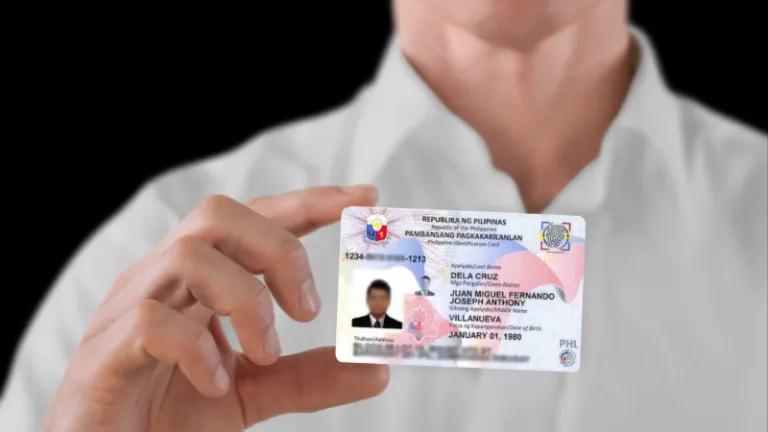 Don’t settle for the first three IDs! You can (and for some, you must!) still get these valid IDs easily, once you’ve secured the others.
Don’t settle for the first three IDs! You can (and for some, you must!) still get these valid IDs easily, once you’ve secured the others.
4. PhilID or National ID

Did you know that before the Philippines implemented the Philippine Identification System, we were one of only nine countries in the WORLD that didn’t have a national ID? Well, one thing’s for sure: If almost all nations around the globe cared enough to institutionalise a unified ID for all their citizens, then a national ID must be really important. Fortunately, we now have that in place.
However, it’s quite a reach to suggest the national ID as a go-to valid ID in the Philippines at the moment. There have been many complaints lately from applicants with regards to its turnaround time. According to PSA, a period of six months is the estimated processing time before release. Unfortunately, some have reported that they’ve been waiting for more than that, and they still haven’t received their national ID.
That said, we have to extend our understanding, given the limitations brought about by the pandemic. Furthermore, the PSA is working around the clock to expedite the application process. You may have found some PSA stalls in malls that accept applications for the national ID.
For the step-by-step process of application, read this.
5. Driver’s license
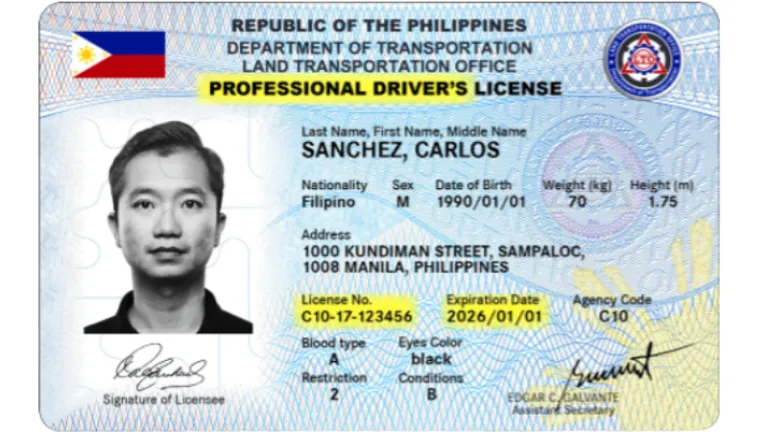
Another powerful identification card to have in your pocket, a driver’s license ID is a must if you wish to take the wheels and drive in the Philippines. The requirements are similar to the other government-issued IDs, except for two additional necessities: a medical certificate signifying you are physically fit to drive, and practical proof that you actually know how to drive. Please, do not get one if you don’t know how to!
6. Professional Identification Card (PRC ID)
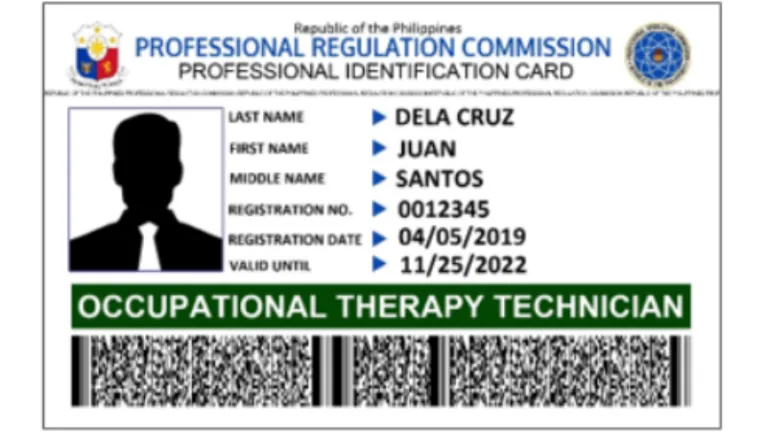
Licensed professionals, such as engineers, doctors, and accountants, among many others, must get a PRC ID in order to practice their profession. We’re just putting it out here, since passers of the professional licensure examination surely know about the PRC ID already. (We who aren’t licensed professionals have no business in getting one!)
7. Senior citizen ID
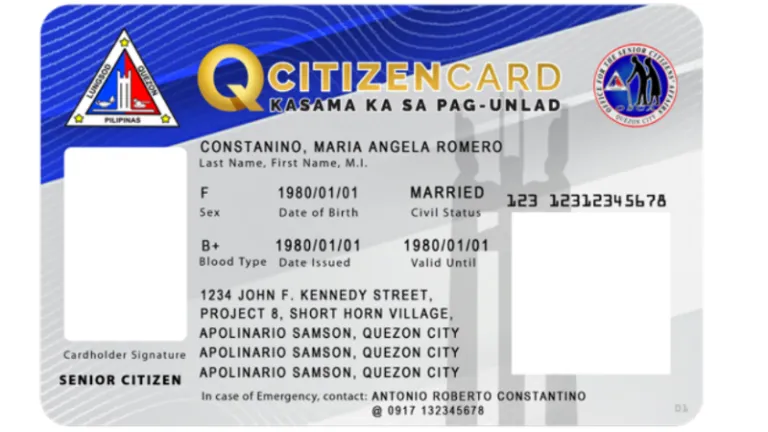
For our dearly beloved nanays and tatays, getting a senior citizen ID offers lots of benefits. Aside from being considered a valid ID in the Philippines in most transactions, it allows our elderly to reap some hefty discounts on stores. In some cities, seniors are allowed to watch free movies in cinemas, too!
Valid IDs for Philippine passport applications
On 13 Sep 2022, the DFA posted a consular advisory on their Facebook page regarding valid IDs for Philippine passport applications. As per the post, all IDs must be readable, untampered, and consistent with other application documents. The following valid IDs will be accepted:
- SSS ID
- UMID
- LTO Driver’s License
- Alternative: Student permit in card form
- PRC ID
- PhilID
- OWWA/iDOLE card
- Voter’s ID
- Alternative: Voter’s Certificate issued by COMELEC Main Office, Intramuros
- PNP Firearms License
- Airman License
- Issued August 2016 onwards
- School ID
- Only for student applicants
- If school ID is not available, the applicant may present a Certificate of Enrollment (with a photo of the minor and a dry seal of the school).
- Postal ID
- Senior Citizen ID
- Seafarer’s Record Book
- Alternative: Seafarer’s Identity Document
If you are applying for a passport for the first time, remember to bring both original copies and photocopies of one valid ID and one supporting document. For more information, visit the DFA official website.
That’s it for our list. There are still lots of government-issued IDs that you can get, but certainly, you can’t go wrong with the ones above. So, go get these IDs for yourself. You never know when they might come in handy!
Featured image credit: Aaftab Sheik via Canva Pro
Published at
About Author
Martin Joseph Raymundo
Subscribe our Newsletter
Get our weekly tips and travel news!
Recommended Articles
10 Best Banawe Restaurants for a Mouthwatering Food Trip in QC 14 Best Credit Cards for Travel in the Philippines The only plastic we need for travel.
10 Commandments for Responsible Travel Flexing Spread the good word!
Top 10 Post-Breakup Destinations for Healing and Self-Rediscovery Ready for a solo travel?
10 Tips for Planning Out-of-Town Trips During Typhoon Season Stay safe and travel well during the rainy season.
Latest Articles
Philippine Passport Rises Global Rankings as U.S. Falls Out of Top 10 The Philippine passport just levelled up again in the global travel game!
Baguio Is Now Richer Than 7 Metro Manila Cities… but Locals Aren’t Happy About It Residents say the city’s booming economy is starting to feel more suffocating than successful.
Mariah Carey Brings Early Christmas Magic to Manila Fans Filipinos enjoy festive concert
Travelling Safely Around Mt. Kanlaon: What to Know Before Visiting La Castellana Smart travel tips for visiting Negros Occidental during Mount Kanlaon’s active phase
Manila Halloween 2025: The Wildest Parties You Don’t Wanna Miss Halloween's back and Manila's going feral!

